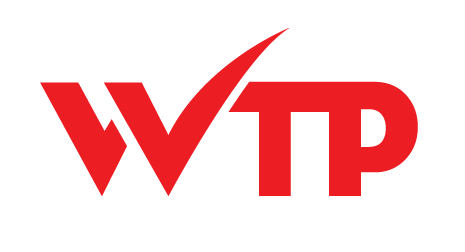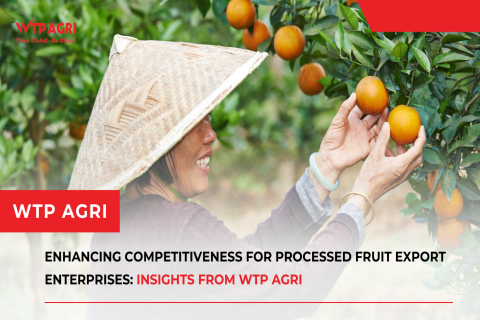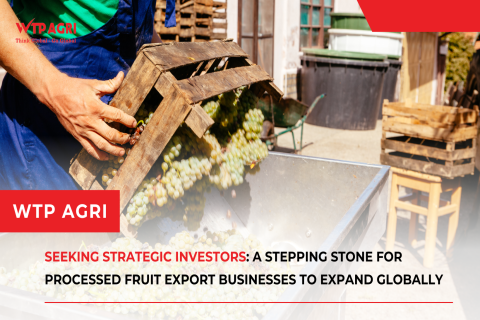Top countries importing canned fruits from Vietnam
Vietnam’s fruit and vegetable exports reached $3.55 billion in 2021, up 8.6%. canned fruits made up 10% of this amount, or $355 million. Which countries buy Vietnam’s canned fruits? What makes Vietnam competitive in this market? This article will answer these questions and give some insights into the canned fruit trends.
The Top Importers of Canned Fruits from Vietnam
According to the International Trade Centre (ITC) data, the top five countries that imported canned fruits from Vietnam in 2021 were China, the United States, Japan, Korea, and Germany. These five countries accounted for about 70% of Vietnam’s total canned fruit exports in terms of value. The following table shows the export value and volume of canned fruits from Vietnam to these five countries in 2021:
|
Country |
Export Value (USD million) |
Export Volume (tonnes) |
|
China |
108.9 |
49,788 |
|
USA |
67.7 |
16,819 |
|
Japan |
35.8 |
9,526 |
|
Korea |
32.4 |
11,334 |
|
Germany |
24.6 |
6,216 |
As can be seen from the table, China was the largest importer of canned fruits from Vietnam in 2021, with a value of 108.9 million USD and a volume of 49,788 tonnes. This means that China accounted for about 31% of Vietnam’s total canned fruit exports in terms of value and about 44% in terms of volume. China is a neighboring country of Vietnam, with a large population and a high demand for tropical fruits. Moreover, China and Vietnam have signed a free trade agreement (FTA) that reduces tariffs and facilitates trade between the two countries. These factors make China a lucrative market for Vietnamese canned fruits.
The United States was the second-largest importer of canned fruits from Vietnam in 2021, with a value of 67.7 million USD and a volume of 16,819 tonnes. This means that the United States accounted for about 19% of Vietnam’s total canned fruit exports in terms of value and about 15% in terms of volume. The United States is one of the most developed countries in the world, with a high income level and a diverse consumer preference. American consumers are increasingly interested in healthy and natural foods, such as organic and non-GMO products. Vietnamese canned fruits can meet these demands by offering high-quality products that are certified by international standards such as USDA Organic, EU Organic, Global GAP, etc. Additionally, the United States and Vietnam have established a comprehensive partnership that enhances bilateral trade and investment cooperation. These factors make the United States a promising market for Vietnamese canned fruits.
Japan was the third-largest importer of canned fruits from Vietnam in 2021, with a value of 35.8 million USD and a volume of 9,526 tonnes. This means that Japan accounted for about 10% of Vietnam’s total canned fruit exports in terms of value and about 8% in terms of volume. Japan is one of the most advanced countries in Asia, with a high standard of living and a sophisticated consumer taste. Japanese consumers are very discerning and demanding when it comes to food quality and safety. Vietnamese canned fruits can satisfy these requirements by complying with strict regulations and standards imposed by the Japanese government and consumers. Furthermore, Japan and Vietnam have signed an FTA that eliminates tariffs on most agricultural products between the two countries. These factors make Japan an attractive market for Vietnamese canned fruits.
Korea was the fourth-largest importer of canned fruits from Vietnam in 2021, with a value of 32.4 million USD and a volume of 11,334 tonnes. This means that Korea accounted for about 9% of Vietnam’s total canned fruit exports in terms of value and about 10% in terms of volume. Korea is one of the fastest-growing economies in Asia, with a high per capita income and a strong consumer culture. Korean consumers are fond of tropical fruits, especially those that are exotic and rare in their country, such as lychees, longans, dragon fruits, etc. Vietnamese canned fruits can cater to these preferences by offering a wide range of products that are fresh, tasty, and nutritious. Moreover, Korea and Vietnam have signed an FTA that reduces tariffs and enhances trade relations between the two countries. These factors make Korea a potential market for Vietnamese canned fruits.
Germany was the fifth-largest importer of canned fruits from Vietnam in 2021, with a value of 24.6 million USD and a volume of 6,216 tonnes. This means that Germany accounted for about 7% of Vietnam’s total canned fruit exports in terms of value and about 5% in terms of volume. Germany is one of the most powerful countries in Europe, with a high level of economic development and a large consumer market. German consumers are interested in healthy and sustainable foods, such as organic and fair trade products. Vietnamese canned fruits can appeal to these interests by providing products that are environmentally friendly and socially responsible. Additionally, Germany is a member of the European Union (EU), which has signed an FTA with Vietnam that eliminates tariffs on most agricultural products between the two regions. These factors make Germany a key market for Vietnamese canned fruits.

The Factors that Make Vietnam a Competitive Exporter of Canned Fruits
Vietnam has many advantages that make it a competitive exporter of canned fruits in the global market. Some of these factors are:
- Abundant and diverse fruit resources: Vietnam has a tropical climate that is suitable for growing various kinds of fruits, such as mangoes, pineapples, lychees, dragon fruits, bananas, and many more. These fruits are not only delicious and nutritious, but also have distinctive features that differentiate them from other countries’ products. For example, Vietnamese mangoes are known for their sweet and sour taste, while Vietnamese lychees are famous for their fragrant and juicy flesh.
- Low production cost and high value-added: Vietnam has a low labor cost and a favorable land rent compared to other countries that produce canned fruits. This allows Vietnam to produce canned fruits at a lower cost and offer competitive prices in the global market. Moreover, Vietnam has invested in improving its processing technology and quality control to increase the value-added of its canned fruits. For example, Vietnam has adopted high-pressure processing (HPP), membrane technology, and molecular techniques to enhance the shelf life, safety, and nutritional value of its canned fruits.
- Strong government support and trade integration: Vietnam has received strong support from its government to develop its fruit industry and promote its export potential. The government has implemented various policies and programs to assist fruit farmers and processors, such as providing subsidies, loans, training, infrastructure, certification, etc.Vietnam is one of the countries that actively participate in Free Trade Agreements (FTAs). According to the WTO Center (under VCCI), Vietnam has signed 13 FTAs, including 7 FTAs as an ASEAN member and 6 FTAs as an independent party. Currently, Vietnam is also negotiating 3 more FTAs. Thanks to these FTAs, Vietnamese canned fruits have benefited from the reduction of tariffs and non-tariff barriers, as well as the expansion of the consumption market.
>>> See more: A step forward in bilateral cooperation between Vietnam - the United States

Conclusion
Vietnam is a potential canned fruit exporter in the global market. This country has a rich and diverse source of fruits suitable for canning. The country also has low production costs and high added value for canned fruit. Furthermore, the country has received strong government support and trade integration to boost export performance. The top five countries importing canned fruit from Vietnam in 2021 are China, the United States, Japan, South Korea and Germany. These countries account for about 70% of Vietnam's total canned fruit exports in terms of value. In the future, Vietnam has great potential to replace countries such as China, Thailand,... to become the canned fruit supply chain for the whole world. We are fully capable of meeting strict requirements for quality and output according to international standards.
Do not hesitate to reach out to us for further insight and exploration into how we may contribute to the sustainable development of your enterprise. Contact us by filling out the contact form which you can find on this page. Either get in touch with our team at agri.crm@wtp.vn or give us a call on (+84)971 279 099. And remember we can also provide tailored service if you need it.
News Related
- Dried Fruits Import: Attractive Business Opportunity for International Businesses
- 5 delicious and refreshing nata de coco drink recipes
- A step forward in bilateral cooperation between Vietnam - the United States
- Advantages of shifting the fruit juice supply chain to Vietnam
- Aloe Vera Juice – Manufacturer and Supplier

 Vietnamese
Vietnamese  Korean
Korean Japanese
Japanese Chinese
Chinese



